Fishing lovers often wonder about the legality of using corn as bait. This seemingly simple question opens a can of worms in fishing regulations, varying widely by location.
Are you casting your line into murky waters of legality? Let’s gently reel in the answer together, without getting tangled in the legal nets.
The Legality of Fishing with Corn: State-by-State Breakdown
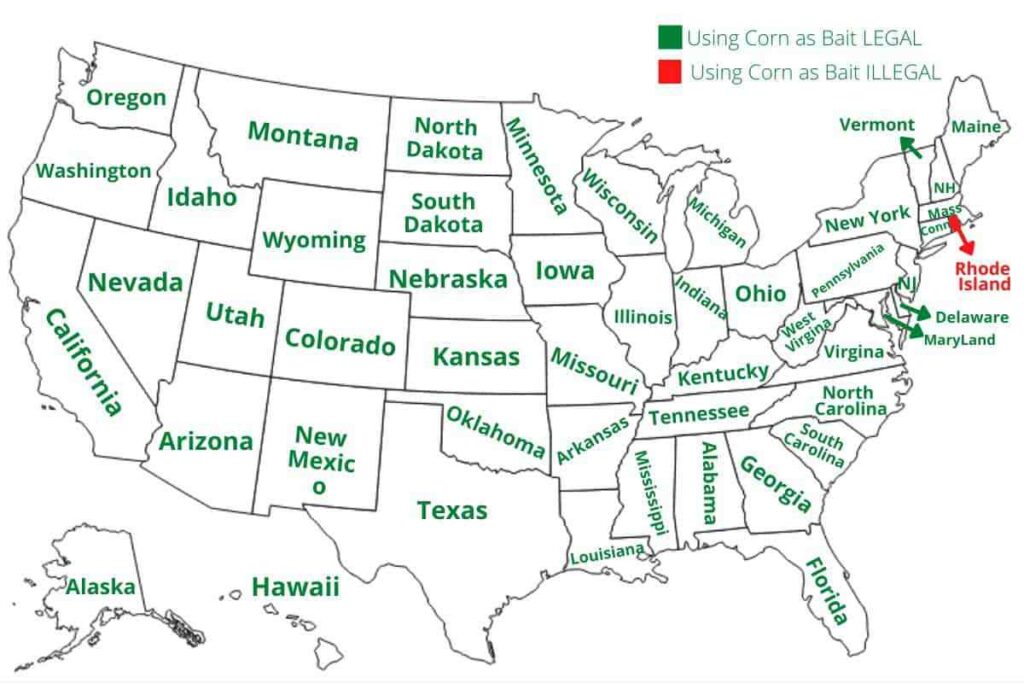
| State/Country | Legal to Use Corn as Bait | Legal to Use Corn as Chum |
|---|---|---|
| Alabama | Yes | Yes |
| Alaska | Yes | Yes (Except Bristol Bay) |
| Arizona | Yes | Yes |
| Arkansas | Yes | Yes |
| California | Yes | Yes (Only in Salton Sea) |
| Colorado | Yes | No |
| Connecticut | Yes | Yes |
| Delaware | Yes | Yes |
| Florida | Yes | Yes |
| Georgia | Yes | Yes |
| Hawaii | Yes | No |
| Idaho | Yes | No |
| Illinois | Yes | Yes |
| Indiana | Yes | Yes |
| Iowa | Yes | Yes |
| Kansas | Yes | Yes |
| Kentucky | Yes | No |
| Louisiana | Yes | Yes |
| Maine | Yes | No |
| Maryland | Yes | Yes |
| Massachusetts | Yes | Yes |
| Michigan | Yes | No |
| Minnesota | Yes | Yes |
| Mississippi | Yes | Yes |
| Missouri | Yes | Yes |
| Montana | Yes | Yes |
| Nebraska | Yes | Yes |
| Nevada | Yes | Yes (Only in Lake Mead) |
| New Hampshire | Yes | Yes |
| New Jersey | Yes | Yes |
| New Mexico | Yes | Yes |
| New York | Yes | Yes |
| North Carolina | Yes | Yes |
| North Dakota | Yes | No |
| Ohio | Yes | Yes |
| Oklahoma | Yes | Yes |
| Oregon | Yes | No |
| Pennsylvania | Yes | Yes |
| Rhode Island | No | No |
| South Carolina | Yes | No |
| South Dakota | Yes | Yes |
| Tennessee | Yes | Yes |
| Texas | Yes | Yes |
| Utah | Yes | Yes (Only in Lake Powell) |
| Vermont | Yes | Yes |
| Virginia | Yes | Yes |
| Washington | Yes | Yes |
| West Virginia | Yes | Yes |
| Wisconsin | Yes | Yes |
| Wyoming | Yes | Yes |
| Canada | Yes | Varies by Province |
| United Kingdom | Yes | Varies by Region |
When fishing, it’s your duty to be aware of the local laws regarding bait and chum, particularly when it comes to using corn. While many states allow corn to be placed on hooks, the use of corn for chumming is more tightly regulated.
In some places, such as Alaska and New York, it’s permissible to chum with corn, but in states like Colorado and Hawaii, it’s prohibited.
Make sure you check the specific regulations of the location where you plan to fish. These rules aim to preserve the natural habitats and maintain healthy fish populations.
They can differ from one state to another and even between different waters within the same state, so it’s critical to confirm the regulations applicable to your intended fishing spot.
Best Types Of Corn For Bait
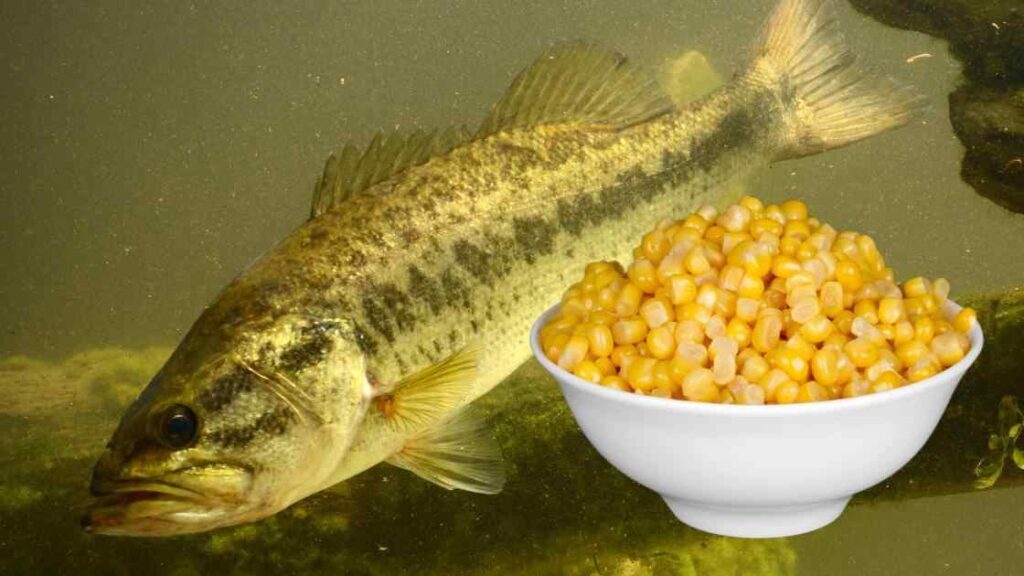
When fishing with corn, always check local rules to ensure it’s permitted. Different corn varieties can be effective for bait, and here are some top choices:
Whole Kernel Corn
- Natural: Resembles genuine aquatic food sources.
- Visibility: Its bright hue helps to attract fish.
- Scent: Emits a potent smell that encourages fish to bite.
Canned Sweet Corn
- Convenience: Easily accessible and simple to use.
- Softness: Perfect for effortless hooking and has a texture that fish like.
- Sweetness: The high sugar levels can be very appealing to certain fish.
Artificial Corn Baits
- Durability: More resilient than real corn, which means less frequent bait changes.
- Variety: Available in an array of hues and smells to suit various conditions.
- Ethical: Lessens potential damage to fish populations and their habitats.
Why Some States Prohibit Fishing with Corn
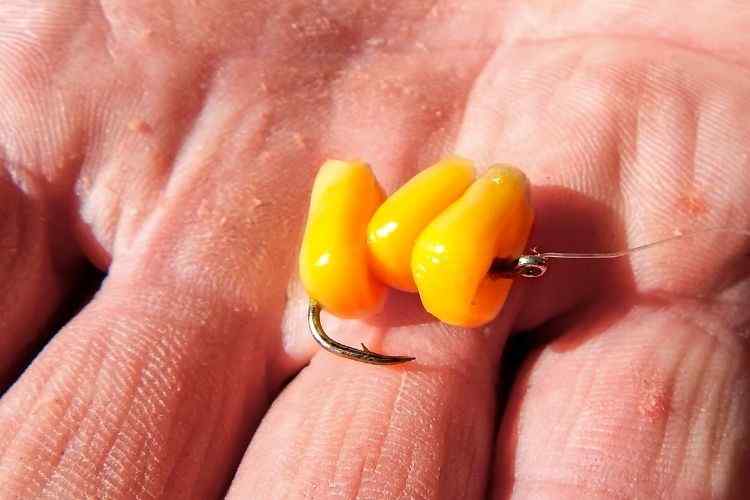
Certain states have rules against using corn as bait or for chumming due to environmental concerns and the risk of impacting local fish populations negatively.
These regulations are in place because non-native food items such as corn could change the natural feeding habits of fish or possibly carry diseases.
An excess amount of corn can also break down in water, causing issues with water quality, such as reduced oxygen levels, which can harm aquatic organisms.
Using corn to concentrate fish in a specific area increases their vulnerability to being caught in large numbers, which can lead to overfishing.
The goal of such regulations is to preserve a healthy ecosystem and promote fishing practices that are responsible and sustainable.
It’s the angler’s duty to be aware of and adhere to regional rules regarding the use of corn as bait or chum to avoid legal consequences.
Is Chumming With Corn Legal?

Anglers often ponder whether they can use corn as chum to attract fish, as the rules differ greatly from one place to another. This tactic entails scattering corn in the water, but the legality of doing so is determined by the specific location where you intend to fish.
Local Regulations:
- In Alaska, Arizona, and Virginia: Permissible
- In California, Colorado, and Kentucky: Prohibited
- Confirm with authorities in your area before using corn as chum.
The emotional responses to these rules can vary:
- Feeling irritated due to the varying rules that can lead to confusion and impact your fishing experience.
- Experiencing letdown when regulations force you to abandon preferred fishing techniques.
- Sensing contentment when the method is approved, allowing you to use a tried and true tactic.
To fish in a manner that’s both responsible and lawful, it’s critical to be up-to-date with the most recent fishing regulations wherever you intend to cast your line.
Why Do Fish Find Corn Attractive?
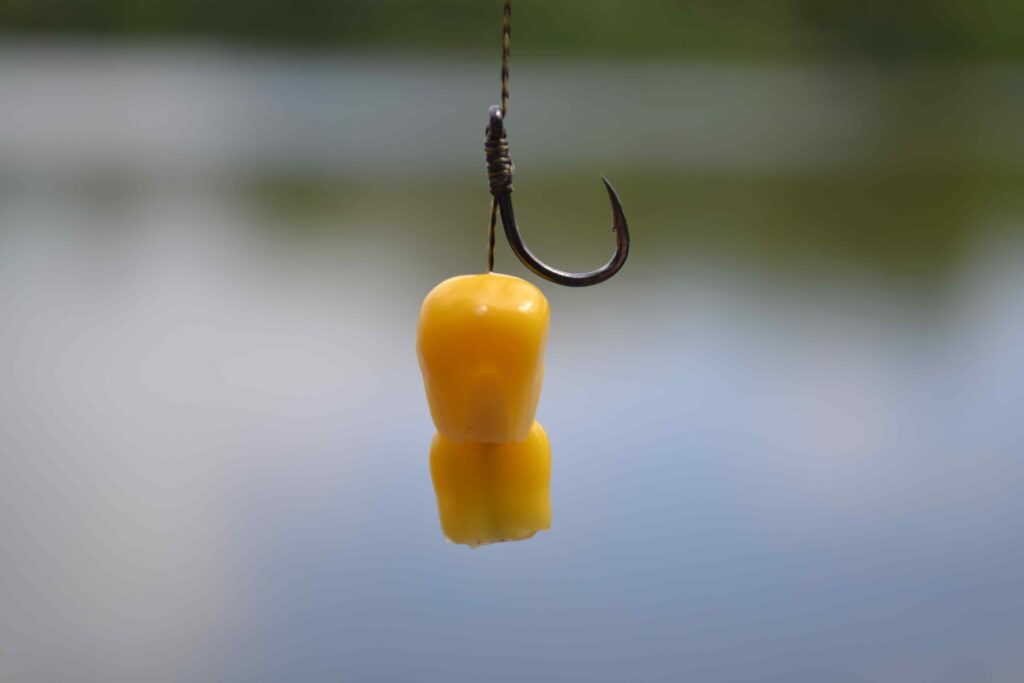
Fish are attracted to corn as bait for several reasons. Firstly, the bright color of corn kernels, especially yellow, is easily noticed by fish in the often dim underwater environment.
This serves as a visual attractant. Once their curiosity is piqued, the flavor and consistency of corn prove appealing, particularly to fish with taste receptors sensitive to sweetness, such as carp and trout.
Additionally, the sugars and aromas emitted by corn when immersed in water can send an olfactory signal, prompting fish to explore and eventually snack on it.
Does Corn Harm Fish?
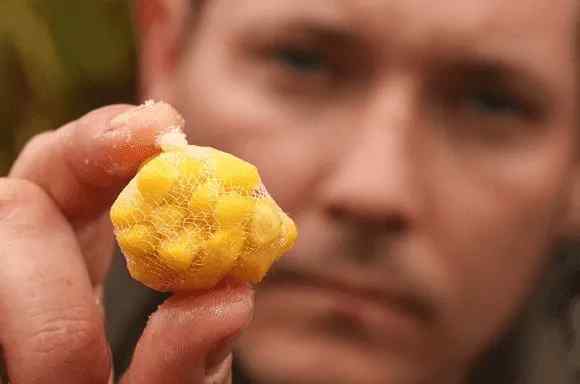
While corn is a common bait used by anglers, there’s no solid proof indicating that small amounts of corn are harmful to fish health. Yet, there are several aspects to keep in mind:
- Overfeeding:
Feeding fish too much corn can cause digestive problems. It’s crucial to use corn in moderation to avert potential issues. - Hook-related injuries:
Fish ingesting corn attached to a hook might sustain injuries. Using barbless hooks can reduce harm during catch and release. - Ecological balance:
Throwing excessive corn into water bodies can upset local ecosystems. Practice responsible fishing to maintain the environment’s natural equilibrium.
What Kind Of Fish Can You Catch With Corn?

While it’s necessary to consider the impact on ecosystems when using corn as bait, one might be curious about the types of fish that find this bait appealing.
Corn has proven to be an effective lure for various freshwater species, particularly those with omnivorous diets. Here’s a brief overview of some of the fish you might catch using corn:
| Fish Species | Ideal Time for Fishing | Preferred Corn Preparation |
|---|---|---|
| Trout | Dawn/Dusk | Whole Kernel |
| Carp | Warm Afternoon | Dough Balls |
| Catfish | Night | Dough Balls/Whole Kernel |
| Bluegill | Morning/Afternoon | Whole Kernel/Small Pieces |
Make sure to check the fishing regulations of your location before using corn as bait, as rules can vary across different regions and bodies of water.




